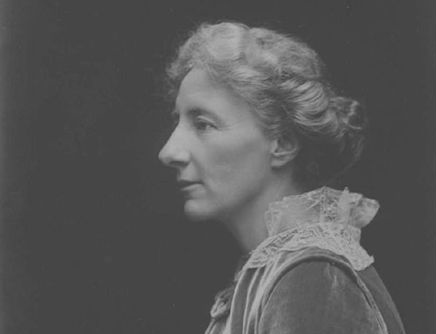Lucy Streatfield: Pioneer in Asbestos Exposure Awareness
Awareness & ResearchWritten by Michelle Whitmer | Edited By Walter Pacheco

One of the first people to sound the alarm on the dangers of asbestos was a female factory inspector from the United Kingdom.
In 1898, Lucy Deane Streatfield wrote a report on the adverse health effects of working with asbestos in factories.
Her report was the first of its kind in the United Kingdom — and among the first in the world — to uncover the risks of asbestos exposure. Today, we know asbestos causes mesothelioma cancer and other serious illnesses.
Streatfield’s work to reveal the dangers of asbestos were the humble beginnings of the workers’ rights revolution. Her bravery paved the way for other inspectors to advocate for safer working conditions.
She was one of the first female factory inspectors in the U.K., and the first to raise concerns about the hazards of asbestos exposure.
Her report spoke of the “easily demonstrated dangers to the health of the workers.”
Streatfield and other factory inspectors noticed “cases of injury to bronchial tubes and lungs medically attributed to employment of the sufferers.” These health effects caused the inspectors to pay closer to attention to the ways asbestos was processed in factories.
It also motivated inspectors to view asbestos fibers under a microscope.
“The evil effects of asbestos dust have also instigated a microscopic examination of the mineral dust by Her Majesty’s Medical Inspector,” Streatfield said. “Clearly revealed was the sharp, glass-like jagged nature of the particles.”
Streatfield’s report was featured in the larger, annual report for Her Majesty’s Chief Inspector of Factories. At the time, her warnings were ignored.
Later Reports Confirmed Streatfield’s Findings
In reports published between 1906 and 1910, other female factory inspectors discussed concerns over asbestos exposure.
-
In a 1906 report, the inspectors said working with asbestos caused more injury to workers than any other dust-producing work in factories.
-
In 1911, a study conducted on rats proved asbestos causes fibrosis of the lungs, or asbestosis. The study was led by J.M. Beattie, a professor at the University of Sheffield.
-
By 1927, a U.K. doctor confirmed asbestos exposure causes asbestosis in humans. Dr. Ian Grieve conducted a study on asbestos factory workers in Armley, England. He reported asbestosis among workers who manufactured asbestos mattresses for use on trains.
Workplace Regulations Implemented
These reports painted a bleak picture of the effects of working at an asbestos factory at the turn of the 20th century.
The evidence became undeniable. In the early 1930s, the United Kingdom began regulating asbestos in the workplace.
New policies were created to reduce dust at work. Factories had to install ventilation systems. They also had to provide protective clothing, face masks and other safety equipment.
These efforts drastically reduced asbestos exposure in U.K. factories.
Streatfield’s groundbreaking work went largely unnoticed at the time. But, today, we celebrate her efforts and acknowledge the important role she played in changing the course of history.






